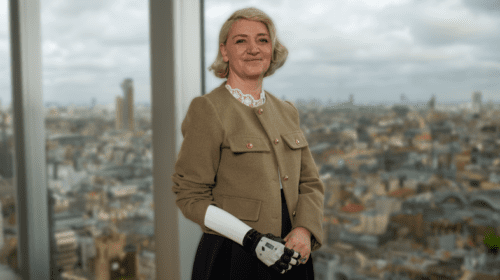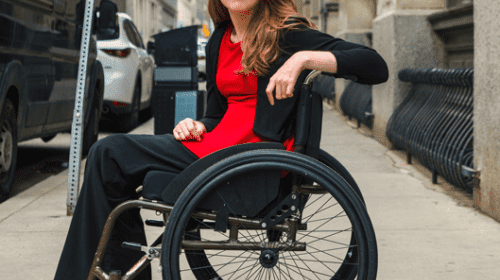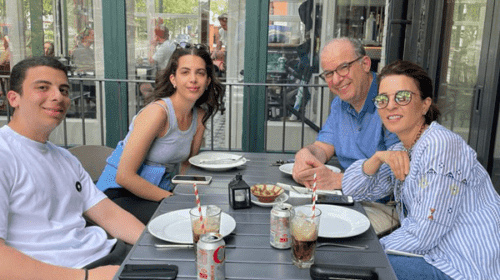In conversation with Dec McLaughlin, Founder at Auzi (fashionable hearing aids) and Co-Founder at Foras (showcasing Scottish startups to the world).
Angela McKane: Dec, hi! Thank you so much for making time to speak today. As a fellow Scot, I’m going to jump right in and ask if you could tell us a little about Foras?
Dec McLaughlin: Hello! Yes, sure. I founded Foras along with my two co-founders, and we work with ecosystem partners to showcase Scotland internationally from an innovation and start-up/scale-up perspective. It’s our way of putting Scotland on the world stage and saying, “Hey, we’re open for business.”
AM: Fantastic – Scotland is incredible!
DM: It is, and often I find that start-ups are incredible as well, especially when they are really purpose-driven. I admire founders who have identified a problem and thought to themselves, “Why has no one sorted this out?” and then from there decided to sort it out and build a business to do so.
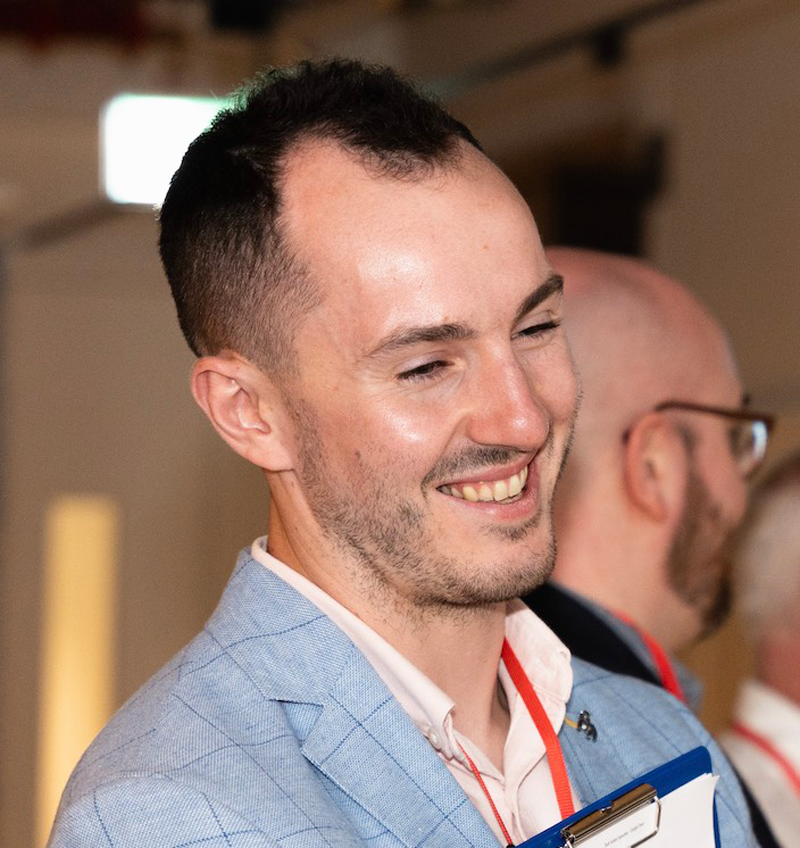
AM: Indeed. In fact, you are also one such founder who identified a problem that needed to be solved, correct?
DM: Yes! (McLaughlin holds up to the camera the prototype of the hearing aid case he has designed). I usually take my hearing aids out when I’m wearing headphones for a call, so I can show you here on the camera. Have a look…
AM: Nice! I wondered when I found about Auzi, if maybe you wore hearing aids.
DM: Oh, yes, I have for as long as I can remember…definitely from around three or four years old. My parents had noticed that I wasn’t responding to certain noises or when they spoke to me, and eventually it became apparent that I had moderate hearing loss in both ears. In fact, interestingly, my older brother – who is 18 months older than I am – was found to have the same thing, so it’s probably genetic. I think it helped to deal with it, to have each other going through the same thing – getting all the testing and then getting hearing aids at such a young age. I also got speech therapy tailored for the stage of development I was at as well.
AM: How did you feel about the hearing aids when you were young?
DM: Well, even as a child, for some reason, I felt some kind of stigma around them. The descriptive name – “hearing aids” – just sounds so medical, and the design of those I was given was also very medical and very functional. I found I had a lot of social anxiety as a kid at school, and I think it is partly related to this. It would present in quite a physical way; I would feel totally choked up at times.
As I grew toward adulthood, I received some Cognitive Behavioral Therapy (CBT) – which helped a lot – and now, as an adult, I am much more comfortable that this is just part of who I am, and I embrace it. However, even then, I am supposed to wear two (one for each ear), but I usually just wear one. It’s therefore something that has preyed on my mind as I have grown up. I had an amazing group of friends which I’m grateful for, but I just felt different.
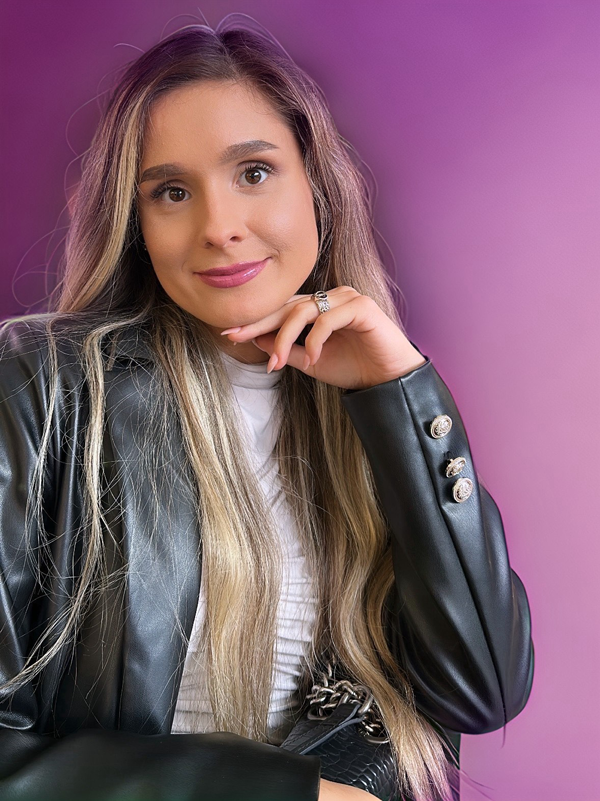
Also, I noticed that for people who wear glasses, they can get some really cool designs! From Ray Bans, to Warby Parkers, to really high-end designers like Gucci and so many more – so many frames and designs to choose from, you can find glasses that suit you and convey some of your personality as well. I have known of people who would wear glasses without prescription lenses – they didn’t need them – but they looked good! It began to occur to me that it was difficult to conceive of hearing aids being perceived in the same way.
AM: It’s not something I’d thought of before but, now you’ve said it, I get your point.
DM: I started talking to my girlfriend Daniela Groza about it – she’s a jewelry designer and GIA certified gemologist, and has been making jewelry for over a decade. Of course, people wear jewelry as an expression of themselves, and jewelry is often a highly desirable thing to have. We started thinking, “What if we could do something here to design hearing aids?”
Our first step was to see if there is any competition; is anyone doing anything already? We found some small blog sites and small enterprises with jewelry decorations for existing hearing aids and realized this made a lot of sense. Here in the U.K., if you are going to redesign the hearing aids themselves, then you will need appropriate medical certificates and so on. I realized we had an opportunity – hearing is a sense that for some of us might need some support in the same way as eyesight does – it is time for hearing aids to have their “glasses moment!”
AM: Amazing! This is a great idea, both as a wonderful product to bring to market but also because there might be people out there who would benefit from hearing aids but who might be holding back.
DM: Exactly. There was a study at the University of Manchester in 2020 which reviewed 15 years’ worth of data, and found that, in that time, 20 percent of people who had been issued with hearing aids in the U.K. reported not using them at all, and a further 30 percent reported using them only some of the time. It also made me ponder, if this relates to those who had been issued with hearing aids, what about those who would benefit from them, but who perhaps have avoided considering it due to stigma, worry, costs or other considerations.
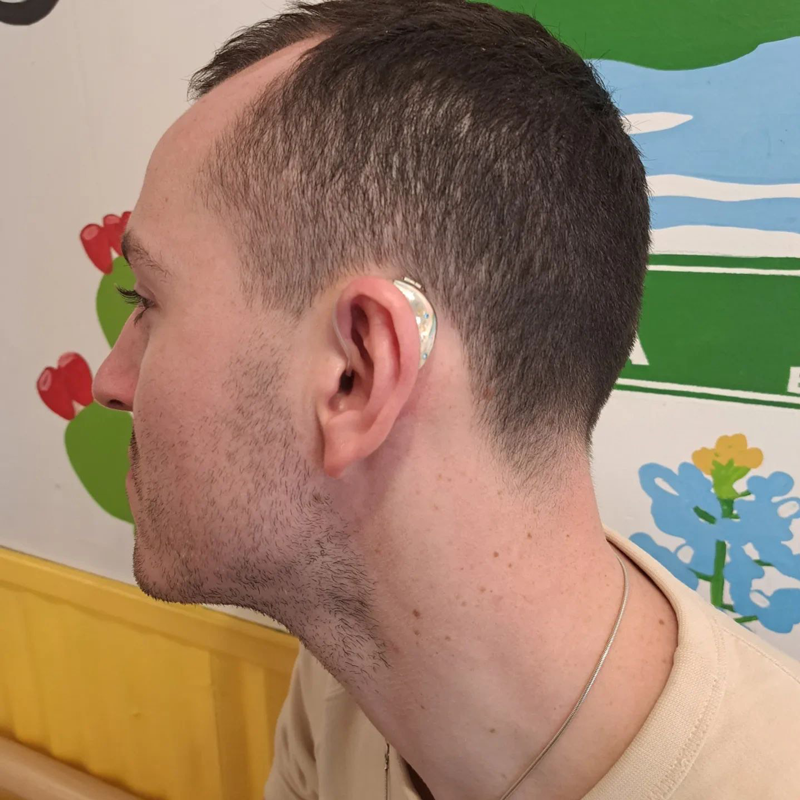
AM: These consumer trends are interesting. I read a report that said some people now use Apple Airpods Pro as hearing aids.
DM: Yes. They wouldn’t be suitable for severe hearing loss, but it’s pretty cool that they can be used for background noise cancellation or to amplify the voice of the person you are speaking with. What I’d like to do is bring hearing aids to market that are designed beautifully, and that start a movement around this – so much so that it would spark competition as well. I would really welcome that. It would be great to be able to run off a list of brands making gorgeous and effective hearing aids, just as is possible to do when describing those who design glasses frames today.
The market opportunity is attractive: We have an aging population, more of us will need hearing aids in time, there are many people out there who would benefit and are not yet using them, so let’s make them as desirable and fashionable as any designer pair of glasses!
Plus, there is so much opportunity for exciting product innovation coming down the line here too – smart assistant hearing aids enhanced with AI that can differentiate between different types of noise, for example. Some of these already exist, but typically at very high price points. I think we could bring innovations to market and compete on price, bringing these within reach of many.
AM: I love the vision! I wish you lots of success. Is there any final message that you would like to leave here for our readers?
DM: Yes, I think my final message is, for a lot of the hearing aid brands who are on the market today, their USP is often about designing the hearing aids in such a way that they can be described as “invisible” or “hidden.” I understand where they are coming from, but here at Auzi we are looking to flip that idea completely on its head and design hearing aids that people want to wear, and want to show off, because they like the way they look, and the way they feel, and they have not had to compromise at all on performance to achieve that either. Auzi will bring people “stylish sound.” After all, why not?
AM: Stylish sound – brought to you all the way from Bonny Scotland. Most excellent!
For more details, check out the Auzi website.
Headline photo: One of designer Daniela Groza’s creations in silver for Auzi.
Angela McKane works with early-stage startups focused on developing solutions across the defense, transport and energy sectors. Prior to this McKane was VP Technology Insights at bp, where she grew and led a global team for over a decade, delivering actionable insights on emerging technology innovations and investment opportunities to teams across the Group. Earlier in her career, McKane worked at Transport for London (“TfL”) and, prior to that, she worked at her alma mater, the University of Glasgow. McKane is a regular speaker at industry leading conferences including Gastech, CERAweek and more. Connect with McKane onLinkedIn.
Oil and gas operations are commonly found in remote locations far from company headquarters. Now, it's possible to monitor pump operations, collate and analyze seismic data, and track employees around the world from almost anywhere. Whether employees are in the office or in the field, the internet and related applications enable a greater multidirectional flow of information – and control – than ever before.


